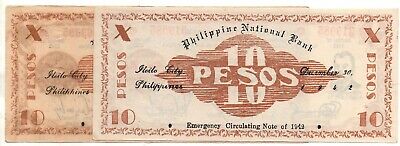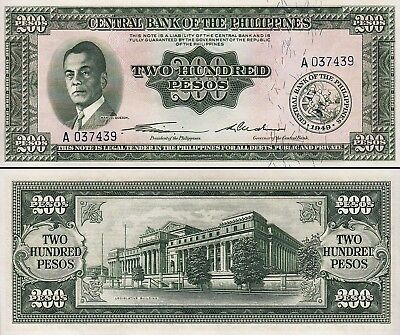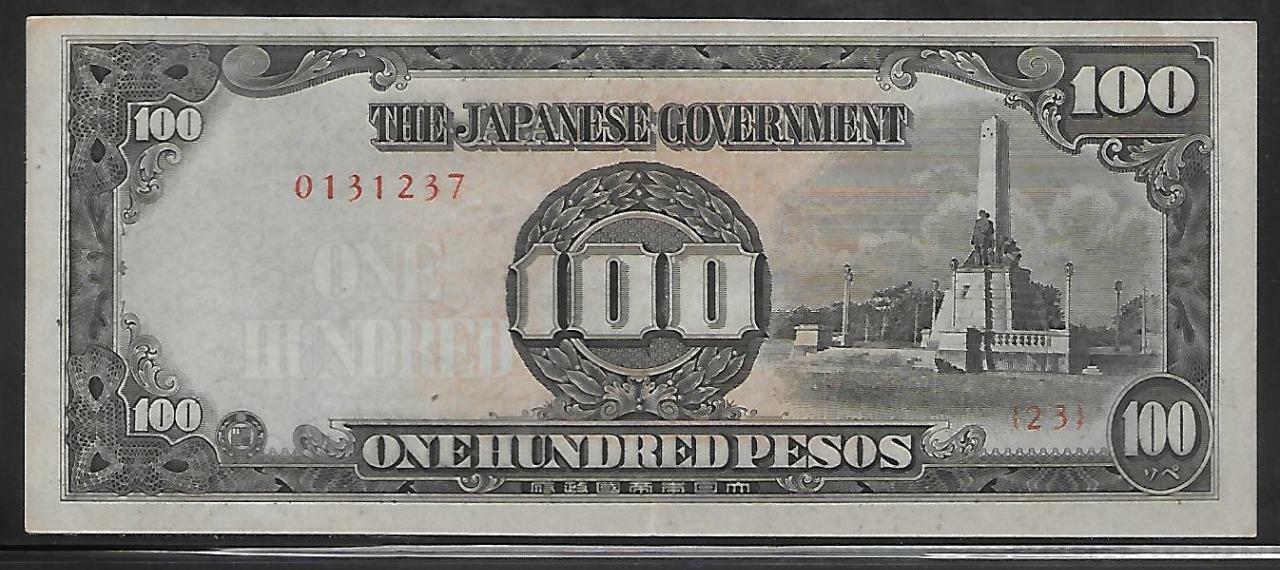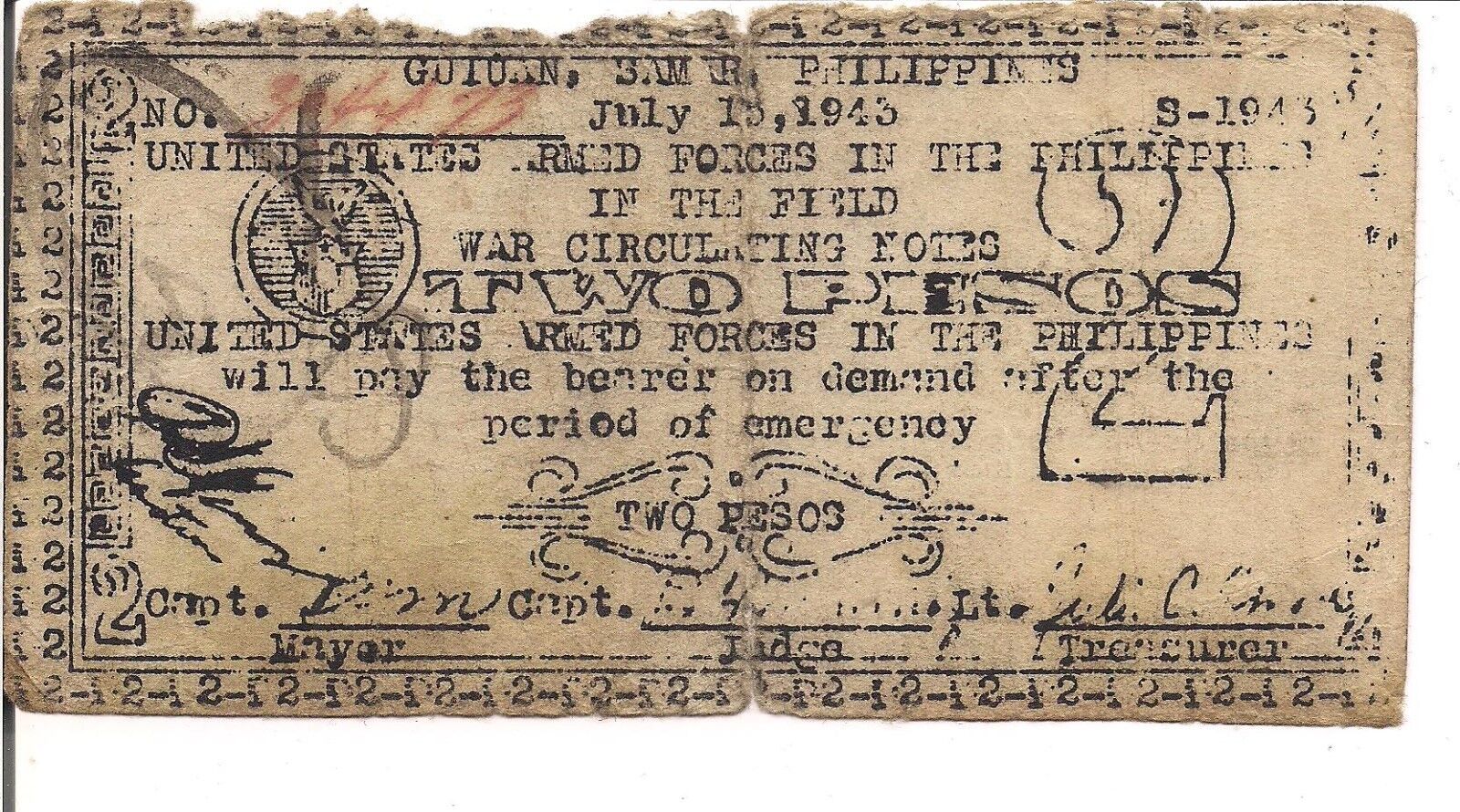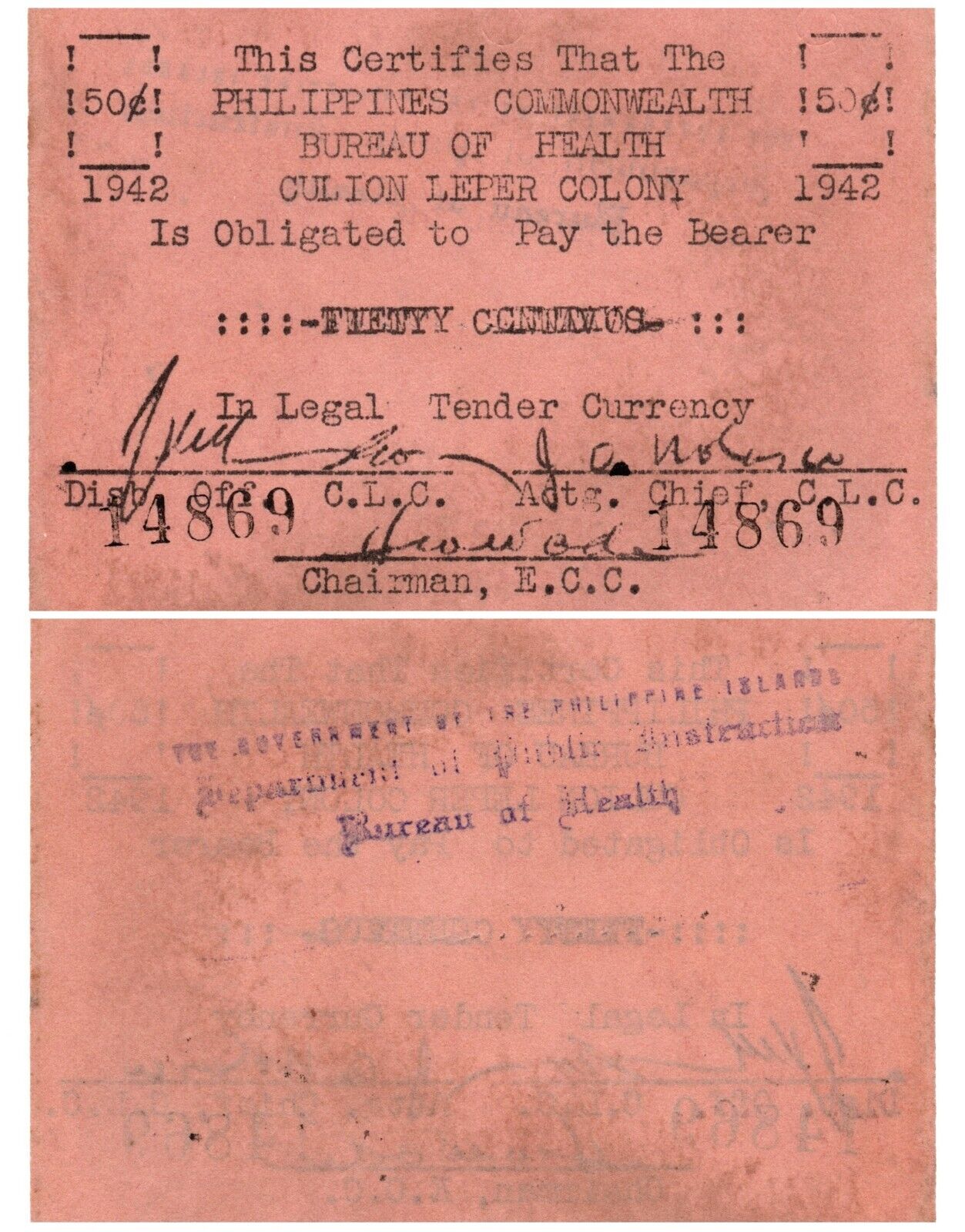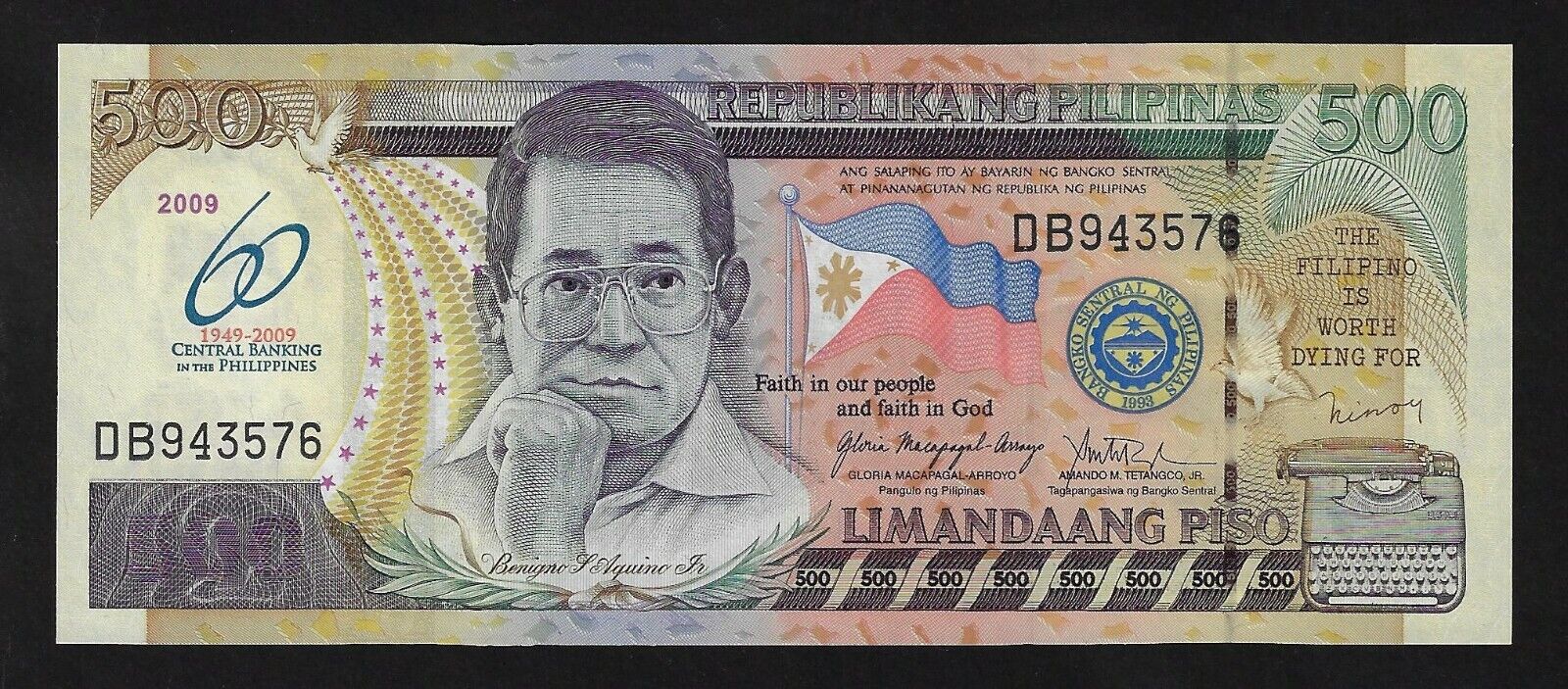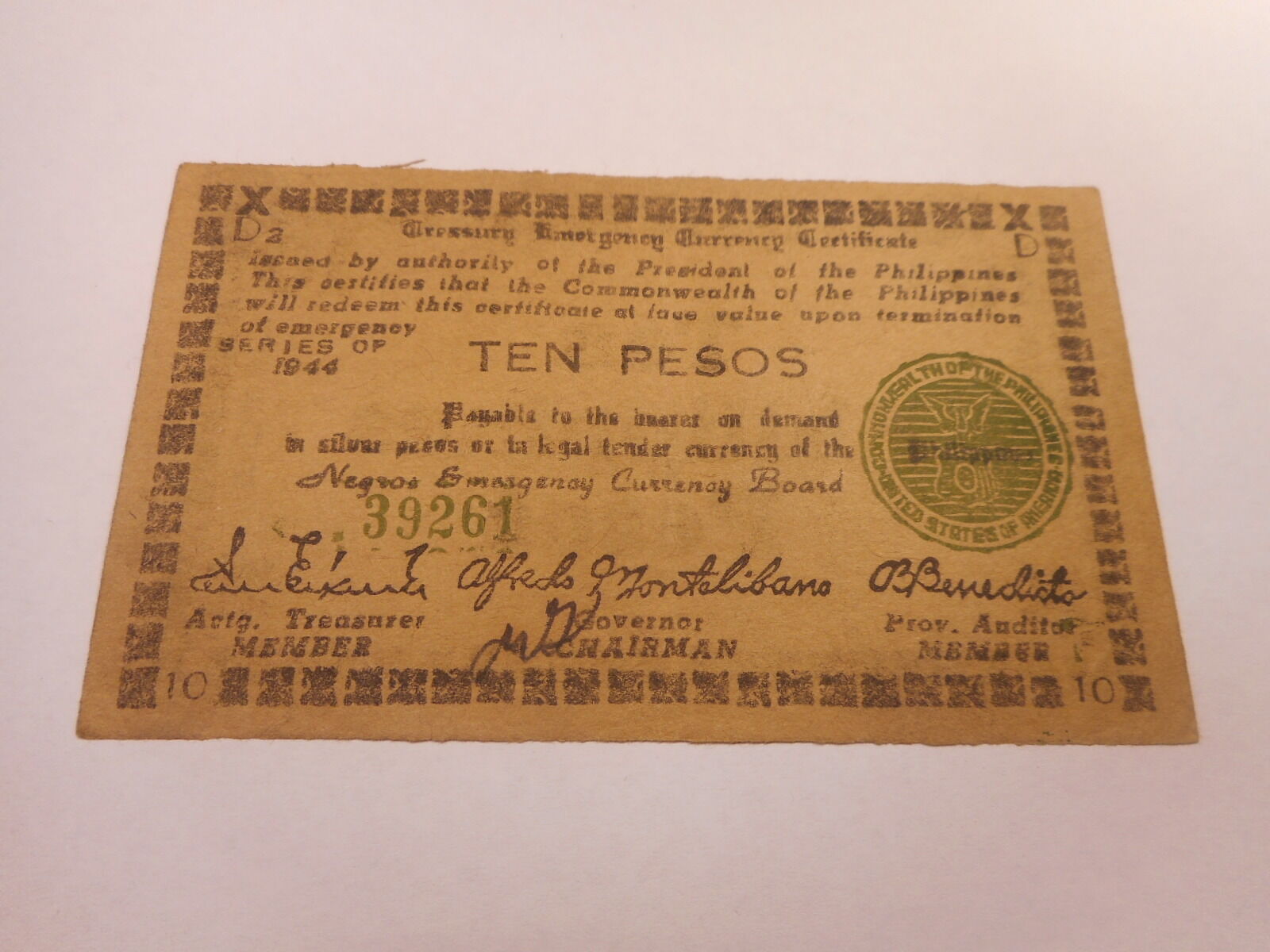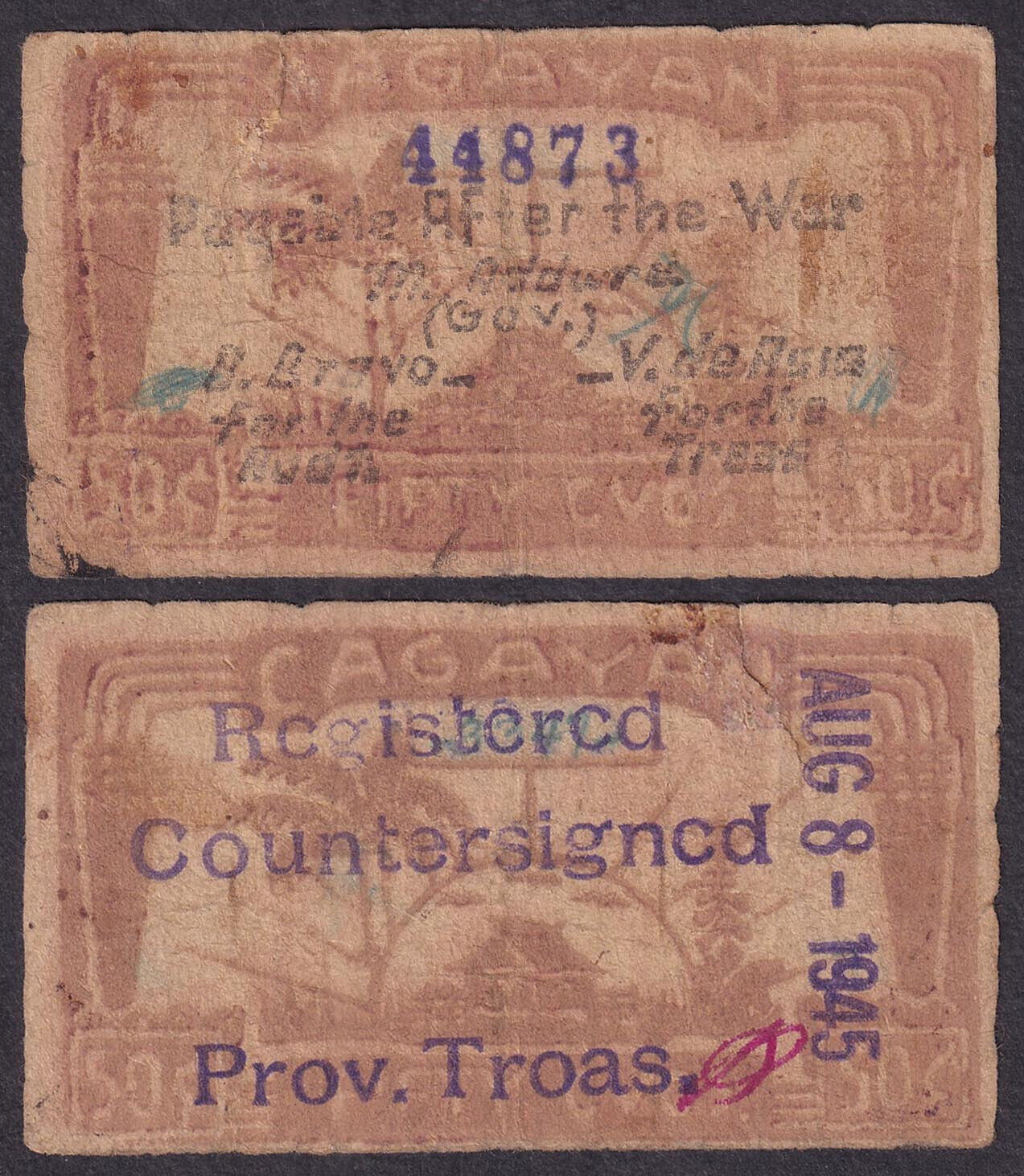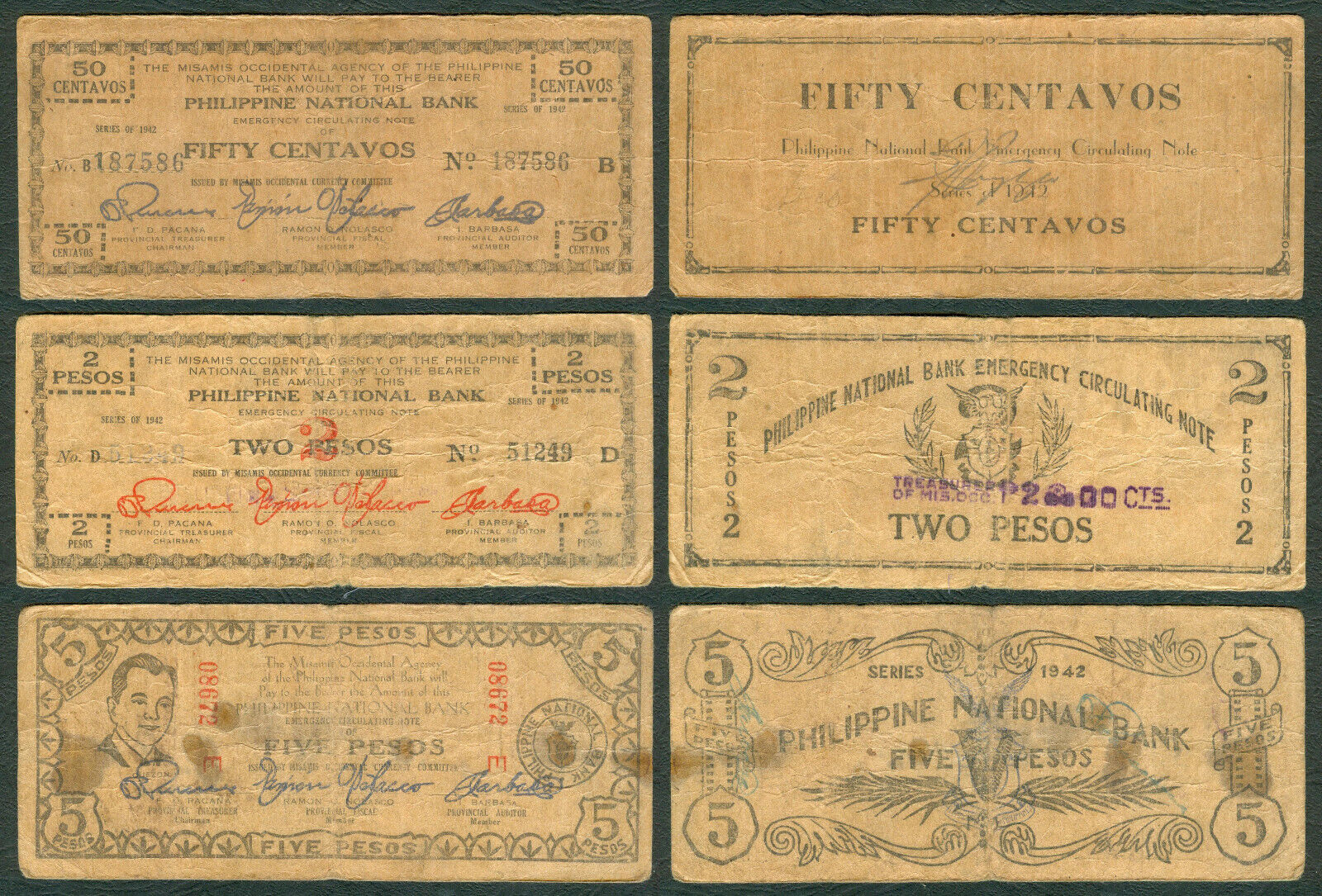-40%
1942 PHILIPPINES National Bank ILOILO S317 Printing ERRROR Misspelling on Back
$ 14.25
- Description
- Size Guide
Description
Philippine National Bank- Iloilo CityEmergency Circulating Note Issues
S317 10 Pesos Note
Brown With Black Text, Quezon at Left
Serial Number Range 1851 to 421,000
#319,998 and
#263,395 printing error Misspelling
Please See The Scan For Condition.
The Iloilo Currency Committee was created by President Quezon in a telegram dated December 29, 1941. Cenon S. Cervantes, Manager of the Iloilo Branch of the Philippine National Bank, was named Chairman, with Provincial Auditor Bartolome Fernandez and Provincial Fiscal Jose Quisumbing as Members. They were authorized to print 100,000 pesos in fractional and 1 peso notes to provide change to ease the coin shortage.
But the shortage of small denomination currency notes was equally acute. The Committee therefore, went ahead with preparations to print denominations from 5 centavos to 10 pesos. La Defensa Press in Iloilo City was engaged to do the printing.
On January 27, 1942 printing of 10 peso notes began and by February 3, ten thousand notes had been printed, the full amount authorized. All of these notes were handsigned by each Committee Member. All subsequent printings would have facsimile signatures.
The Committee telegraphed President Quezon requesting that the amount authorized be increased to 3,000,000 pesos. When no reply was received, the committee, on its own initiative, decided to continue printing due to the urgency of the situation.
Printing of 10 pesos notes was resumed and that of the 1 peso began. La Editorial Press in Bilibagan, a barrio of Santa Barbara, was engaged to print 2 and 5 pesos notes. It was March before printing of centavo notes was undertaken.
In the meantime President Quezon had arrived in Panay, and not only commended the Committee for its initiative, but increased the authorized amount to 5,000,000 pesos. Later, in a telegram dated March 14, Quezon informed Chairman Cervantes, YOU ARE AUTHORIZED TO PRINT ALL THE CURRENCY NEEDED BY THE ARMY IN PANAY.
Printing operations came to a halt with the Japanese invasion of Iloilo on April 16, 1942. A total of 6,551,450 pesos had been turned over to the Iloilo Branch of the Philippine National Bank. 20 Centavos notes are known with serial numbers higher than officially recorded. Apparently the Japanese invasion prevented final delivery, and how these notes reached circulation is not known.
Shortly after the notes were issued there were reports of idential serial numbers being found on both the 2 and 10 pesos denominations. The notes were identical except that one would be less clearly printed and have poorer serial numbers. This leads to the possibility that poorly printed and rejected sheets were pilfered, serially numbered outside the plant, and placed in circulation.
There are several varieties of counterfeit 10 pesos notes. Most of these were produced durinig the occupation. One type, with very crude serial numbers, circulated widely in Bohol and may have been produced there.
Registered Mail w/Tracking



